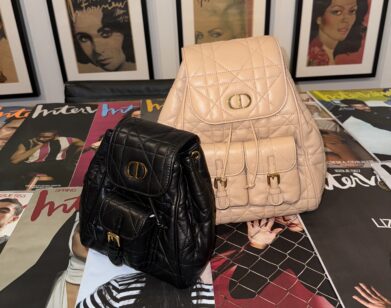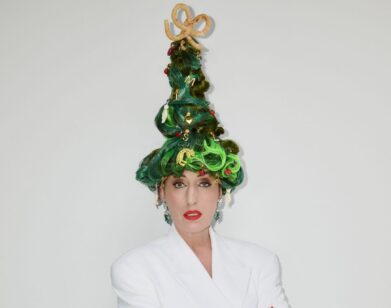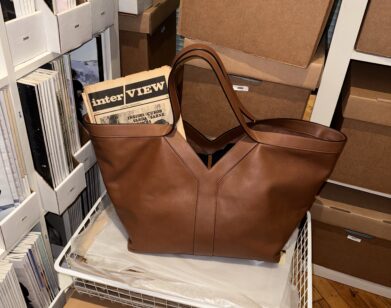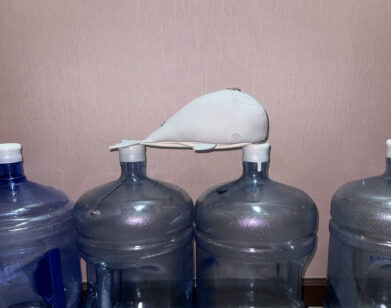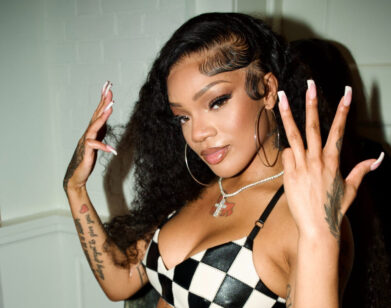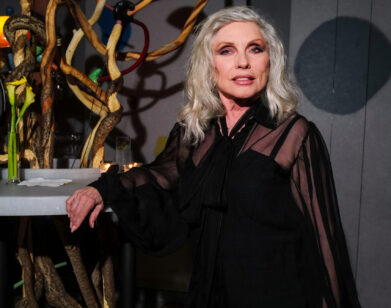Lacoste’s New Crocodile: Felipe Oliveira Baptista
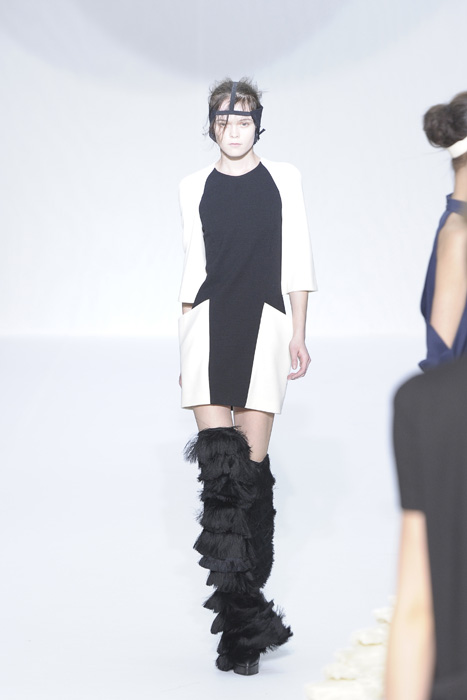
PORTRAIT BY FUJI SHOJII
Portuguese designer Felipe Oliveira Baptista is skyrocketing through French fashion. After winning the prestigious Hyères festival, and Andam awards (headed by Carine Roitfeld herself), he launched his own label in 2003, today on the offical Haute Couture calendar during Paris Fashion Week. Last week, he was crowned creative director of Lacoste, succeeding Christophe Lemaire, who has gone off to Hermès. He is getting ready to infuse his playful, androgynous lines into the sportswear brand, and turn the old-school crocodile n’ polo on its head. Interview met up with him in Paris after his first week at his new office, and chatted about his past, present, and future in fashion.
ALICE PFEIFFER: How did you get into fashion?
FELIPE OLIVEIRA BAPTISTA: It was slightly accidental. I went to London and was interested in fashion, but also photography and graphic design. Today, I still like everything that goes around fashion. Later on, I wounded up working for Max Mara, Christophe Lemaire, and Cerruti.
PFEIFFER: So no tales of heroic struggle, then?
BAPTISTA Well, like everyone, the reality of fashion can be very harsh, very difficult, especially the first three or four years, but at the same time it’s an incredible drive. But I’m lucky to work with my wife, who does all the management part, so that keeps me sane.
BAPTISTA’S LINE, FALL 2011
PFEIFFER: In 2003, you launched your own label. Who was the Oliveira woman you were hoping to create?
BAPTISTA: I don’t really like the idea of putting “a woman” on a pedestal. This wasn’t a piece of marketing. The starting point should be beauty and a story. You put things together, you start making things and just hope people like them.
PFEIFFER: And can you tell us about your very first collection?
BAPTISTA: Yes, it was after I won the Hyères festival. Almost a year and half had passed, and this was an incredibly frustrating period. I was realizing how hard it was to come out of the water. So the first collection was called “Stripes on Strike,” the idea of a stripe that you have to throw off track. The stripe was the guiding thread of the story. It was a playful collection.
PFEIFFER: And you have aslo worked on street projects, such as collaborations with Nike and UniQlo. Why was this appealing to you?
BAPTISTA: UniQlo was extremely interesting. It was a capsule collection, so I created a micro wardrobe. The cuts, the patterns were mine but designed for the masses, which is something I love. I like to know thousands of people are wearing my designs, not just 40 of them. As for Nike, it was great because they gave me carte blanche, it was an artistic creation. I was just totally free. It’s important to be able to adapt. I do consulting on the side, and I find it extremely enriching to be able to understand different spheres of the industry.
PFEIFFER: Today, you are now creative director for Lacoste. What will be the relationship between your own designs and the Lacoste work? A dialogue, or a radical opposite, like, say, Marc Jacobs vs. Louis Vuitton?
BAPTISTA: There will be a certain dialogue, but its altogether a different approach, for the simple reason that Lacoste isn’t an haute couture house. There’s no competiton between the two, Lacoste is about functional clothing. But inevitably, some similar notions will be present in both: the idea of real clothes, of “neo-androgyny.”
PFEIFFER: This means you will now be showing at New York Fashion Week–are you apprehensive about the American public?
BAPTISTA: The US is Lacoste’s number one market, and it’s very exciting to experience a new fashion week. Of course, I have to do my homework, and understand what the Lacoste reality is to Americans.
PFEIFFER: But you will continue to live in Paris for now?
BAPTISTA: Yes, for now I will. I now have two kids who are schooled here.
PFEIFFER: You are, like your predecessor at Lacoste Christophe Lemaire, one of the few straight designers. May we ask what this feels like?
BAPTISTA: Mmm…like a UFO? People looked at me very weirdly at the beginning, especially when I introduced my wife. It’s true, there are few straight men in here. I think it is because there is such a prejudice, that boys just don’t consider fashion studies as an option.
PFEIFFER: And what are you working on for 2011?
BAPTISTA: I’m working on a small capsule collection for my label, called FOB. It will be like a test, launched summer 2011, which will first be sold in showrooms. It will be a tad cheaper. And for the rest: We’ll see!

